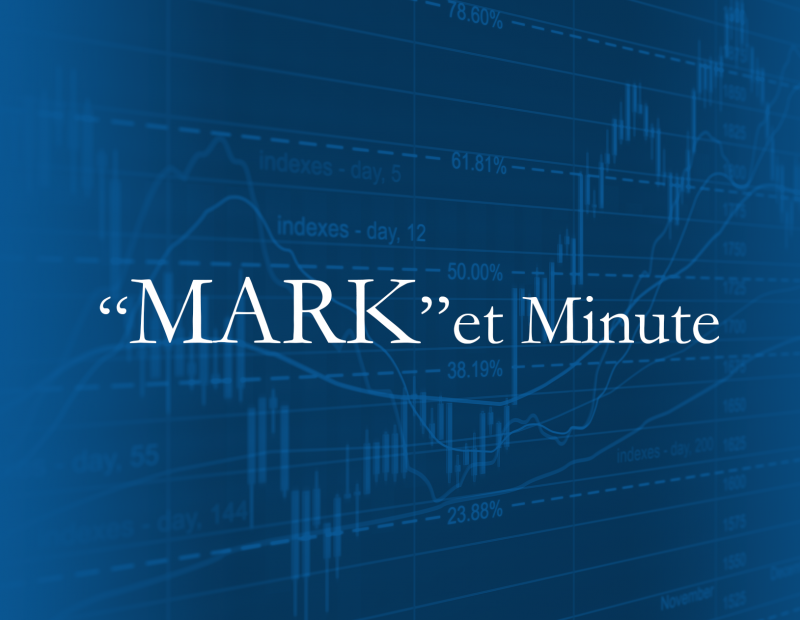Investment Commentary –August 15, 2018
Year to Date Market Indices as of Market Close August 15, 2018
Dow 25,299 (2.35%)
S&P 2,839 (6.22%)
NASDAQ 7,870 (14.01%)
Gold $1,193 (-10.21%)
OIL $66 (12.57%)
Barclay Bond Aggregate (-1.27%)
Fed Funds Rate 2.0% (last increase was 6/13/18)
Turkey Announces Tariffs on U.S. Goods From Cars to Alcohol
Turkey has slapped an additional tax on imports of a broad range of American goods, the latest escalation in a standoff that’s brought ties between the two NATO allies to a breaking point.
The decision follows President Recep Tayyip Erdogan’s call on Tuesday for a boycott of U.S. electronics including Apple Inc.’s iPhones to retaliate for the Trump administration’s punitive actions over the past few weeks to pressure Turkey into releasing an American pastor.
For more on Erdogan’s boycott, read: Erdogan to Boycott IPhones as Turkey Steps up Row with U.S.
A calculation by Bloomberg shows the items listed in the decree accounted for $1 billion of imports last year, similar to the amount of Turkish steel and aluminum exports that were subjected to higher tariffs by President Donald Trump last week. The decision shows Turkey giving a proportionate response to American “attacks” on the Turkish economy, Vice President Fuat Oktay said in a Tweet.
Turkey will impose an additional 50 percent tax on U.S. rice, 140 percent on spirits and 120 percent on cars. There are also additional charges on U.S. cosmetics, tobacco and some food products.
Trade war is still the biggest ‘tail risk,’ say global fund managers
Global fund managers still see a trade war as the biggest “tail risk” facing investors. Around 57% of fund managers cited “trade war” as the biggest tail risk, putting it at the top of the list for a third straight month, the Bank of America Merrill Lynch survey of fund managers found. The survey of 185 managers with $534 billion in assets under management was conducted between Aug. 3 and 9.
Meanwhile, investors have continued to pile into U.S. stocks. The survey found participants were the most overweight in U.S. equities since January 2015. Allocation to U.S. equities rose 10 percentage points to a net 19% overweight, making it the top equity region for the first time in five years. The earnings outlook for U.S. companies was at a 17-year high.
The S&P 500 SPX, +0.64% exited correction territory in July and remains less than 2% below its all-time high set in January.
U.S. Retail Sales Rise More Than Forecast in Broad-Based Advance
U.S. retail sales rose by more than forecast in July as Americans snapped up clothes and headed to restaurants, extending solid consumer-spending gains to the start of the third quarter.
The value of overall sales advanced 0.5 percent from June, whose gain was revised down to 0.2 percent, Commerce Department figures showed Wednesday. The median forecast of economists surveyed by Bloomberg called for a 0.1 percent gain. Excluding purchases of autos and gasoline, sales climbed 0.6 percent, topping the median estimate for a 0.4 percent rise.
The data suggest consumer spending is continuing to drive the economy early in the quarter. Tax cuts have put more money in Americans’ pockets this year, consumer sentiment remains elevated and a gauge of small-business optimism rose in July to the second-highest level on record.
At the same time, wage gains have failed to accelerate much and have been eroded by inflation in recent months. Economists expect consumption, which accounts for about 70 percent of the economy, to settle back in the second half of the year after the fastest quarterly gain since 2014.
Around the Web:
Turkey trouble: Concerns about Turkey’s economy escalated on Friday, rippling through global currency and equity markets and hitting emerging markets especially hard. The Turkish lira slid more than 13% against the U.S. dollar on Friday, adding to the foreign currency’s losses earlier in the week as the United States expanded trade tariffs on Turkey.
Tech strength: Information technology stocks were among the biggest gainers of the week, owing in part to the sector’s strong second-quarter earnings. Tech company profits increased an average of 32% compared with the same quarter a year earlier, based on the more than 80% of the tech companies that had reported quarterly data as of August 9.
Small wins: Stocks of smaller companies generally held up better than large caps, as a small-cap benchmark, the Russell 2000 Index, climbed nearly 1% for the week. Most smaller firms are more domestically focused than bigger companies, and they were less exposed to the week’s troubling overseas developments than many larger companies.
Other Notable Indices (YTD)
Russell 2000 (small caps) 11.03
EAFE International -2.16
Emerging Markets -5.19
Shiller Annuity Index 10.13
The views presented are not intended to be relied on as a forecast, research or investment advice and are the opinions of the sources cited and are subject to change based on subsequent developments. They are not a recommendation, offer or solicitation to buy or sell any securities or to adopt any investments.
https://www.marketwatch.com/story/trade-war-is-still-the-biggest-tail-risk-say-global-fund-managers-2018-08-14
https://www.bloomberg.com/news/articles/2018-08-15/u-s-retail-sales-rise-more-than-forecast-in-broad-based-advance
https://www.bloomberg.com/news/articles/2018-08-15/lira-resumes-drop-as-central-bank-steps-fail-to-stem-sell-off
https://www.bloombergquint.com/technology/2018/08/14/erdogan-vows-to-boycott-u-s-electronic-goods-amid-pastor-spat#gs.DO0m4Ws

